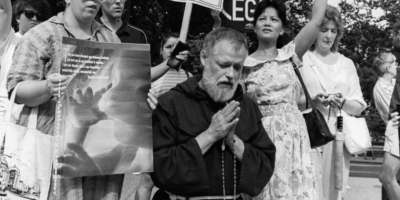Where Zionism and Feminism Connect
Recovered Roots: Collective Memory and the Making of Israeli National Tradition by Yael Zerubavel University of Chicago Press, $32.50, $19.95 paperback
We are living in an era when national stories are being critiqued as mythic, even as lies. As a people in history, Jews are not immune. The stale icon of the normative Jew—male, middle-class, heterosexual, named to a Jewish woman, synagogue-and institutionally affiliated—is crumbling, revealing a vibrant diversity.
Israeli Jews are feeling a similar realignment. The process of collective memory making, common during the formative years of the State, is becoming a contested arena. Yael Zerubavel joins the growing ranks of scholars involved in deconstructing classic Zionist memory. She is among those who not only take for granted that “any tradition is socially constructed,” but seek to demonstrate how various aspects of time honored Israeli traditions were developed in relation to specific political aspirations.
In her latest work. Recovered Roots: Collective Memory and the Making of Israeli National Tradition, Zerubavel gives us a theory of memory construction through thorough Israeli case studies. Winner of the 1996 Salo Baron Prize of the American Academy for Jewish Research, Recovered Roots offers a sharp analysis of ‘three events in the history of Israel to show how Zionists reclaimed each occurrence as part of the construction of a new Israeli national identity: the siege of Tel Hai in1920; the Bar Kokhba Revoh of 132-135; and the fall of Masada in 73. In unpacking these cases, Zerubavel shows how their representation and commemoration helped to congeal core aspects of Zionist identity.
In each of these events, Jewish armed resistance ended in Jewish mass death. But in the Zionist retelling, they are transformed to bolster a story of the new Hebrews, uncompromising and intransigent, a strong if besieged few against many. As heroic legends they also reinforce the nationalist notion attributed to Joseph Trumpeld or after the massacre at Tel Hai, that “it is good to die for one’s country.”
LILITH readers will be struck by the absence of feminist analysis in Recovered Roots. Some of the more obvious questions to be asked are: Where are the women? Why doesn’t Zerubavel question Zionism’s militarism? How does the gendering of the new Israeli Jew as a courageous, militarily-adept man affect the Israeli national consciousness? How could a critical analysis of normative heterosexulity offer us new insight into the field of Israeli history? These lacunae noted, Jewish feminists do have much to learn from this challenge to the notion that the creation of national memory Is a natural, and not a political, process. Zerubavel offers a well-done study of the purposeful collaboration of “educators, writers, politicians, ordinary setters. Hebrew in developing a particularly Zionist memory. This is very much what the Jewish feminist project is up to itself. Jewish feminists are uncovering the difference between law and custom, necessity and power, history and legend. Out of our own experiences and in the gaps, lapses, silences and contradictions, Jewish feminists are recovering certain aspects of Jewish possibility and stepping affirmatively into the communal process of making ourselves into a people in time.
As Recovered Roots discusses the fissures emerging in the standard story of Zionist memory, Jewish feminists will find certain parallels. Zerubavel does not seek the demise of the Jewish people, but a more democratic Israel. She writes, “The multiplicity of texts and the debates on the past indicate that contemporary Israeli culture has become more pluralistic and that Israelis display a greater readiness to examine critically the essence of their collective identity and multiple roots.” Jewish feminists would be glad to say such a thing of the Jewish people as well.
Maria Brettschneider is an assistant professor of political philosophy at the University of New Hampshire. Her publications include Cornerstones of Peace: Jewish Identity Politics and Democratic Theory, and The Narrow Bridge: Jewish Views on Multiculturalism, with a forward by Cornel West


